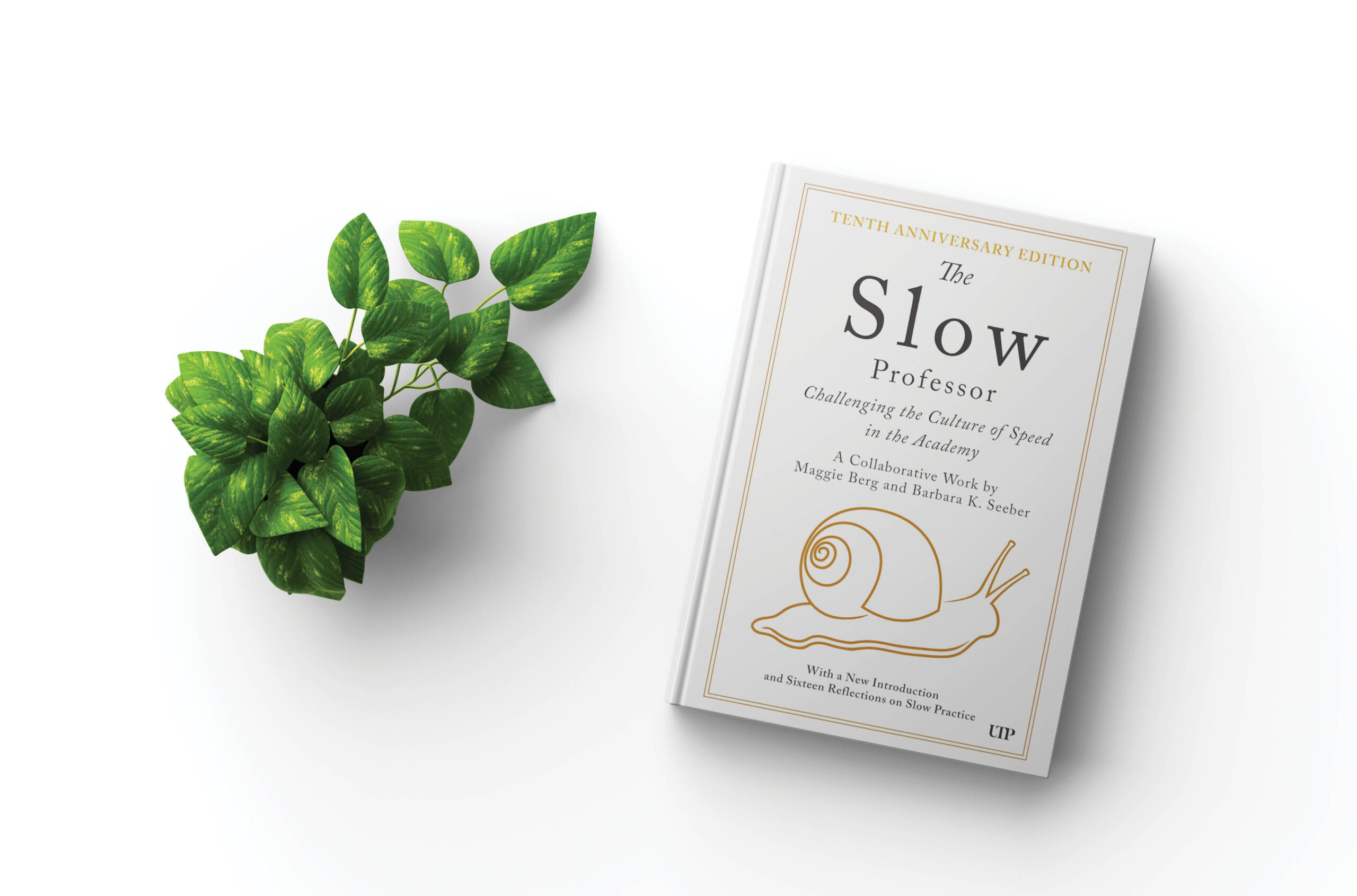Let’s talk about workload
If the judgement of our peers drives overwork, can conversations among peers alleviate it?

Even after more than 20 years as university professors, we still struggle with one thing: knowing how to say “no.” For example, despite our own considerable workloads, we couldn’t resist the offer to write this advice column, geared toward academics at every stage of their career. Still, we haven’t lost hope — and what seems like a lighthearted opening is actually a serious issue. Overwork is a perennial topic of discussion among academics and can even become a point of dispute in labour negotiations.
In this, our first column, we’re focusing on an often-overlooked issue: the difference between the feeling, sometimes self-inflicted, of having to shoulder an excess workload, and our actual obligations toward the institutions that employ us. This will naturally lead us to discuss our professorial practices more broadly.
What exactly do we mean when we talk about overwork? Several studies on the sociology of work have found that people tend to exaggerate their workloads. Anyone who admits that they’re in control of their time and work schedule may be looked on askance; this might drive some people to overestimate their working hours. How often have you heard colleagues say that they have ample time to accomplish their tasks in a satisfactory manner, or, to put it another way, that they don’t feel overwhelmed? It’s tempting to claim overwork simply to avoid sounding lazy, or to fit in with the zeitgeist.
We’re not saying that a professor’s life is a sinecure, but rather that feeling overworked is a subjective measure. You probably know someone who always says they’re snowed under, but whose workload seems perfectly manageable. The opposite could be true of someone else.
To understand the feeling of being overworked, in our opinion, it’s necessary to probe the source of that feeling. Besides the considerable freedom that academics enjoy to choose their professional activities, universities also differ from most other workplaces in another important way: Unlike in the corporate world, where workers face pressure from their superiors to optimize performance and increase profits, universities are organized on a more collegial basis. In a university setting, the approval of one’s peers can exert a more important influence than the approbation of one’s employer, especially given the importance of peer review as a mechanism of evaluating academic work.
In this context, let us dare to ask an irreverent question: Why do we expect our employers to reduce our workloads, rather than critically analysing our own professional practices? This question might sound tendentious, even anti-union. However, we believe it is anything but. We have argued elsewhere that a functional university is founded upon the principles of collegiality and academic freedom. If collegiality is at the heart of what it means to be an academic, we believe that it is right and proper to address the question of workload amongst ourselves, rather than delegating this responsibility to our employers.
It’s true that juggling the many aspects of an academic’s work is challenging, regardless of where we are in our careers. Between preparing and updating courses, supervising graduate students, applying for grants, writing articles, participating in committees, sitting on university bodies, and sometimes chairing a program or department, the variety and scope of tasks can be dizzying. Feeling overworked is understandable, especially (though not exclusively) at the beginning of one’s career.
It therefore seems apt for colleagues to discuss, amongst themselves, their collective work expectations. What makes a good course? How many grant applications should one submit? Does simply applying for a grant count toward meeting departmental expectations, or must the grant be won? How many articles should one publish in a year? What are the expectations for committee work and external partnerships? How do we take into account the fact that some colleagues have been working in the department for 30 years, while others are new to the job?
The list could go on, but you understand the idea: departmental expectations should be clarified based on a group consensus. Of course, those expectations must take into account different professional profiles, career stages, and disciplines, which carry with them different duties and obligations. Reaching consensus may be difficult, and tensions may arise — but we think it is worth the effort. Collective agreements require that faculty evaluation criteria be adopted at departmental meetings. Rather than maintaining the status quo year after year, why not take the opportunity to discuss the matter?
Several studies of the academic workforce have found a lack of clarity in the criteria for achieving symbolic career milestones, like tenure and promotion. Faced with this uncertainty, academics don’t dare to pass up the chance of teaching an extra course, chasing after a funding opportunity, or working nights and weekends to write an umpteenth article, all in the hopes of winning the coveted tenure or promotion.
If you’re a senior academic, think back to how you felt when you were up for tenure. Would having a clearer idea of your group’s expectations have alleviated your anxiety? If you’re working to achieve tenure, odds are you’re feeling the pressure. For this reason, we believe that clarifying expectations represents a tangible path toward diminishing the feeling of being overworked. In a collegial workplace, the judgement of our peers represents a greater source of the pressure that leads to overwork, than the demands of university administration.
How, then, do we begin this conversation among colleagues?
Featured Jobs
- Sociology - Tenure-Track Position (Crime and Community)Brandon University
- Finance - Faculty PositionUniversity of Alberta
- Engineering - Assistant or Associate Professor (Robotics & AI)University of Alberta
- Medicine - Associate or Full Professor (Kidney Health)Université de Montréal














Post a comment
University Affairs moderates all comments according to the following guidelines. If approved, comments generally appear within one business day. We may republish particularly insightful remarks in our print edition or elsewhere.
1 Comments
thanks for info.